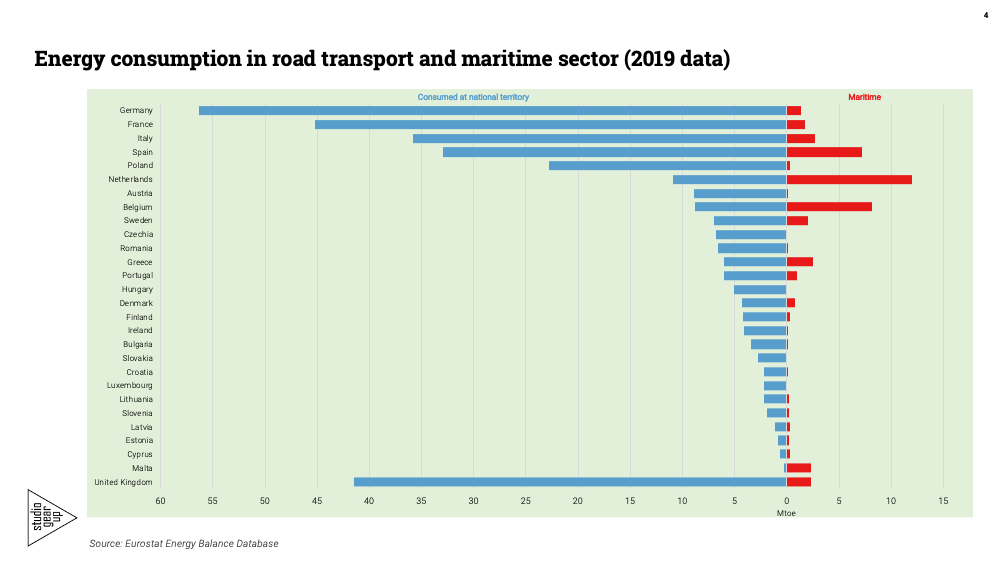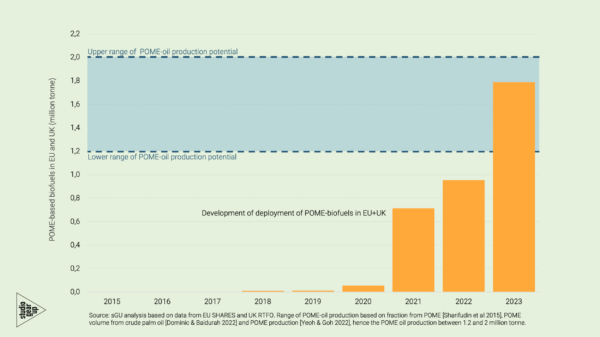At the the May 2023 Conference on Green Marine Fuels by Argus Media, Eric van den Heuvel provides a key-note speech on the implications of the FuelEU Maritime regulation for the future fuel/energy carrier mix to be bunkered in the EU Maritime sector.
He presented the example of the LNG case and a low carbon renewable fuel case as options to lower the carbon intensity of the overall fuel mix.

The main take-aways:
- FuelEU Maritime steers on gradually further reducing carbon intensity of energy used in sector
- Full life cycle approach covers best the path towards lower carbon intensity and climate neutrality, in a technology agnostic manner
- FuelEU Maritime takes off only moderately – it secures competitiveness towards other maritime regions – but obligated parties may be tempted to stick to lower carbon fossil fuels
- The LNG case shows high number of adapted ships needed, that may become obsolete over time
- An early shift to renewable carbon fuels with lowest overall carbon intensity that fit in existing vessel engines provides the opportunity for a ‘smooth’ compliance, while allowing the introduction of new fuel/energy carrier – engine vessels in the longer run when carbon intensity starts to drop more rapidly
- The Netherlands maritime sector now already over-complies to FuelEU Maritime Regulation due to the opt-possibility in under RED – NL Maritime fuel suppliers and sector learn, take pole position, and set the direction
The slide deck can be downloaded here.



